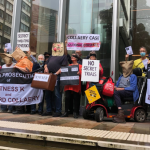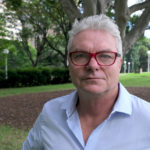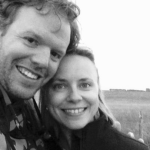Aussies Demand an End to Criminal Prosecutions of Whistleblowers
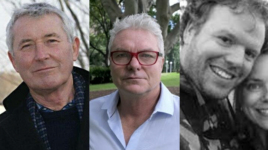
Many Australians breathed a sigh of relief when, on 7 July 2022, new Commonwealth attorney general Mark Dreyfus decided in to end the criminal prosecution of Bernard Collaery – the barrister whose client, known only as ‘Witness K’, exposed our government’s 2004 criminal bugging of the Timor-Leste cabinet.
And while this was welcome news, the question remains as to why a highly-respected barrister – and former attorney general of the ACT – had his offices raided in 2013 and was subjected to years of criminal prosecution for simply representing his whistleblower client in the Hague over a complaint against the Australian government’s illegal bugging of a sovereign nation’s inner sanctum; conduct which ultimately enabled Australia to gain an unfair economic advantage in oil and gas negotiations with our struggling neighbour.
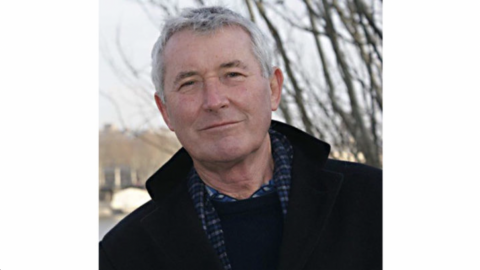
Unsung hero
Witness K can be seen as the hidden, unsung hero in the saga. The former senior Australian Security and Intelligence Service (ASIS) intelligence officer was so appalled by our government’s conduct and its ignoring of his complaints about it, that he bravely endeavoured to give evidence about it at the Hague, before being arrested, charged, prosecuted for years – ultimately pleading guilty in 2019 to offences of disclosing classified material.
He received a three-month suspended prison sentence and a 12-month good behaviour bond.
The truth-teller now has a criminal record for his efforts.
Charges dropped for selfish reasons, not moral or ethical ones
Many hold the view that the primary reason for the federal government dropping the charges against Mr Collaery was that he had been fighting against his trial being held in secret.
In fact, he was successful in ACT Supreme Court, which found on 6 October 2021 that the “very real risk of damage to public confidence in the administration of justice” of the trial being held in secret trumped the “risk of prejudice to national security”. The federal parliament then passed further secrecy provisions to defeat the effect of the decision, and the validity of those enhanced laws was set to be ruled upon by the High Court of Australia.
In the event Mr Collaery’s trial had gone ahead and made public, everyday Australians might have been informed of the details of the government’s illegal bugging enterprise, who directed it, when it was directed, and potentially the content of the information obtained – in other words, the nitty gritty of our government’s conduct towards a beleaguered and friendly neighbour – one our leaders pretended to be helping by providing economic assistance, including building its government offices.
In one of our interviews with Mr Collaery, and despite the fact he was unable to provide details for fear of further reprisals, he remarked “It is a crime to report a crime”. And, indeed, it is in our supposedly democratic country.
And despite Mr Collaery acknowledging that his prosecution has destroyed his legal practice and put him through hell over several years, perhaps his present situation can be seen as better in a way than many others who bravely spoke out about abuses, crime and corruption at the hands of our government and its agencies.
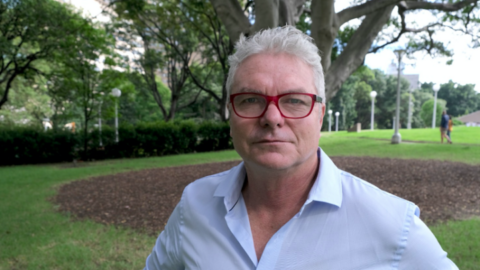
Prosecuted for exposing Australian war crimes in Afghanistan
Take David McBride, for example. The former Australian Defence Force lawyer continues to be criminally prosecuted for exposing war crimes committed by Australian soldiers in Afghanistan, including 39 murders of civilians an unarmed and detained combatants, and the cover-ups that followed.
Mr McBride did all the right things – he referred the reports of war crimes that he received from Australian soldiers, to his superiors. They brushed the reports aside and did nothing.
Mind you, the crimes are appalling to any right-minded person and cannot be excused by the ‘it’s war, anything goes’ mindset. Indeed, the Geneva Conventions outline the rules of war including the protection of civilians and unarmed combatants. Much of the reported conduct by Australian soldiers contravenes those rules in the most blatant, brazen, shameful and indeed criminal way.
The leaked ‘Afghan files’ contain horrific accounts of crimes allegedly perpetrated by Australian military personnel over several years.
They document the “ethical decay” of Australian Special Forces personnel between 2009 and 2013, to the point where they were engaging in the indiscriminate slaughter of unarmed Afghan civilians, failing to report the killings and covering-up their actions.
They contain reports, some including photographs, of:
- slain children, including a boy who was shot dead while he was collecting figs,
- the murder of an unarmed civilian father and his six-year-old child,
- the killing of a detainee who was left alone with an Australian soldier,
- the detention of two unarmed civilian men who were handcuffed and then shot dead in a room used to store almonds, and
- the throwing from a ledge and shooting to death of another unarmed civilian man.
They include footage of an Australian soldier committing the “straight up execution” of a bound, unarmed civilian in a field – asking his superior “do you want me to drop this cunt?” before murdering him.
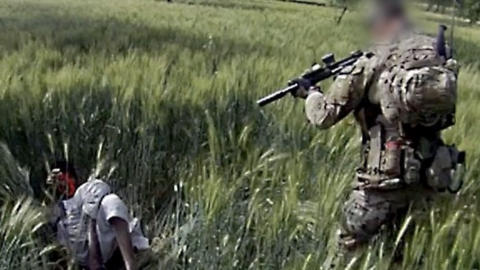
These are just a few of the numerous reports of “unlawful killings” of “innocent civilians” ; reports made by Australian soldiers themselves, many of whom say they witnessed the incidents in person.
The reports speak of the “desensitisation” of Australian military personnel and their “drift in values”.
The reporting soldiers express concerns that, over time, their colleagues had developed a “warrior culture” with a disregard for human rights and Australia’s obligations under international instruments such as the Geneva Convention; an instrument ratified by our nation.
Having been ignored by his superiors, Mr McBride is said to have then leaked the reports to the media – informing the ABC’s shocking Afghan Files reports from 2017.
Those reports, in turn, resulted in the Australian Federal Police raiding the ABC’s offices and the home of a journalist in 2019, searching for the classified reports.
It later led to the Brereton Inquiry – which culminated in the publication on 19 November 2020 of a redacted 465 page report by New South Wales Supreme Court Justice and ADF officer Paul Brereton, known colloquially as ‘The Breretorn Report’.
The report supported was scathing of the conduct of Australian soldiers and toxic culture of the ADF, especially the elite Special Air Service, confirming Mr McBride’s information and recommending criminal charges against the perpetrators.
Yet nearly two years after the publication of the report, Mr McBride remains the only person charged with a criminal offence; indeed, this is his reward for bringing the information to the attention of the public, something which, it is hoped, will trigger a change for the better.
In one of his interviews with us, the former ADF lawyer explained how the public have a right to know about war crimes perpetrated in their name – asserting that such information is “in the public interest”. In another, he speaks of our nation being “a totalitarian regime with a sunny climate”. And he’s right.
Indeed, during the Nuremburg trials of Nazi officers following World War II, the excuses of “I was just following directions”, “it’s war, anything goes” and “I didn’t do anything about it because I was expected not to” did not hold weight. Nor should they now. Those with information about atrocities have a moral if not legal duty to report these matters, despite the potential consequences.
But under threat of criminal prosecution, it takes a truly courageous person to do so.
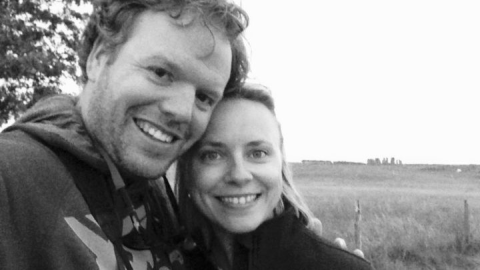
Prosecuted for revealing the illegal practices of the ATO
Another of these brave people is Richard Boyle, the officer from the Australian Taxation Office who is being criminally prosecuted for exposing the practice – ultimately found the be illegal by the courts – of taking money from thousands of people, many of them on social security benefits – without proper process or cause.
In June 2017, ATO management directed that standard garnishee notices – whereby the tax office requires banks to give it money from peoples’ accounts– be applied across the board.
In response, Mr Boyle submitted a 27 page public interest disclosure under section 13 of the Public Service Act 1999 (Cth) in October 2017, advising the office that such a directive was un lawful
The office rejected the advice a fortnight later so, in accordance with the provisions of the
Public Interest Disclosure Act 2013 (Cth), Mr Boyle referred the matter to the Inspector General of Taxation (IGT), making sure that he complied with confidentiality provisions by redacting parts of the information.
Again, no action was taken.
Mr Boyle then foreshadowed taking the matter public, and as a result in January 2018, the ATO offered him a financial settlement if he agreed to sign a non-disclosure order.
By this time, Boyle had had enough of the inaction and – believing the public had a right to know of the ATO’s unlawful conduct, he took his story to the media, which involved a joint Age/Herald/Four Corners investigation that resulted in the April 2018 program Mongrel Bunch of Bastards.
But, just days prior to the airing of the Four Corners episode, the AFP raided Boyle’s Edwardstown apartment, and he was subsequently charged with dozens of Commonwealth offences, including offences under the Taxation Administration Act 1953 (Cth) of disclosing confidential information.
It is well-known that such practices, including the Robodebt scheme, were subsequently found to be illegal and – for the Robodebt extortion scheme alone – the Federal Court ordered the government to pay $1.8 billion for its illegal conduct.
So, Mr Boyle was right – the conduct of the office was unlawful. Indeed, it led to enormous suffering for many of our most vulnerable, and even to suicide.
He went through the rights channels and followed the letter of the law, but nothing was done.
So, he fulfilled his moral duty of making the unlawful conduct known to the public, which led to scrutiny, findings of unlawful conduct, significant pecuniary penalties against the government (paid for, of course, by taxpayers) and an end to some of the unlawful schemes.
And yet, he continues to be criminally prosecuted – currently facing 66 criminal charges.
And once again, no one who directed or implemented the illegal scheme has even been brought to account, let alone criminal prosecuted.
Mr Boyle has pleaded not guilty and defending the charges on the basis that his actions are protected under the extremely limited public interest provisions contained in the Public Interest Disclosure Act.
If convicted of all charges, he faces a total of more than 100 years in prison.
Many more
These are just three examples of brave Australians exposing the crimes and misconduct of our government and its agencies.
There are many, many more – former Queensland police sergeant Rick Flori who exposed the crimes of his colleagues, doctors, lawyers and even charities targeted for reporting on appalling abuses in Australian-run detention centres and, of course, our government’s failure to help award-winning journalist and Australian citizen Julian Assange, who continues to rot in a British prison awaiting extradition to the United States for exposing war crimes.
But hey, this is Australia – a nation that promotes itself as a democracy that protects the rule of law while, in reality, operating as an authoritarian power structure that controls its people with an iron fist and silences dissent by prosecuting those brave enough to speak out, while at the same time protecting the real criminals.

